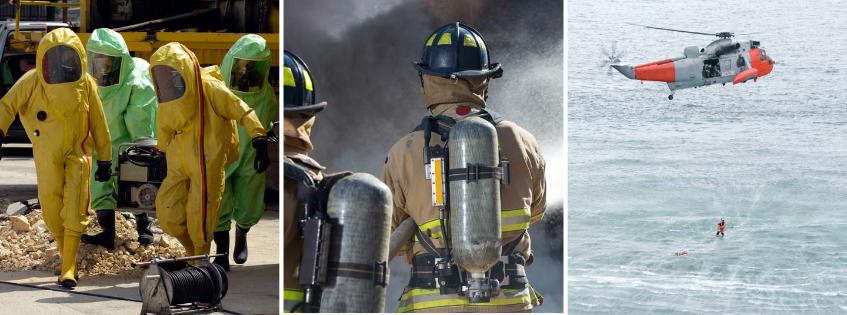Module - Disaster Response
The module will develop the knowledge, skills and behaviours of those expected to deliver interventions or lead in disaster settings. It will broaden and deepen your perception of your role in disaster preparedness, management and resilience principles, shaping your ability to contribute more effectively to doctrine and policy developments that will ultimately improve yours and your team’s practise.
This module can be taken at levels 6 or 7.
The module will develop the knowledge, skills and behaviours of those expected to deliver interventions or lead in disaster settings. It will broaden and deepen your perception of your role in disaster preparedness, management and resilience principles, shaping your ability to contribute more effectively to doctrine and policy developments that will ultimately improve yours and your team’s practise.
By critically evaluating the evidence, your own personal experience and that of others, you will be able to apply credible, timely solutions to compound problems in response to natural or man-made incidents wherever they occur.
You may enter the programme at undergraduate degree or postgraduate level to deepen and widen your perspectives of this important aspect of your work. The module can be studied on its own, or can form part of the BSc/MSc Paramedic: Practice Development programme or UADip/PgC Disaster Crisis and Humanitarian Response: Practice Development depending on the level studied.
The module will run over three months and may be accessed completely on-line, with students working at their own pace and fitting their studies around their professional and personal lives.
Summative assessment is a written assignment that will be agreed with your tutor at the beginning of the module. You will use your learning and formative evaluations throughout the module to shape your final assessment.

- Using a sociological approach, review and evaluate the role and contribution of the multi-professional team in disaster planning, response and resilience.
- Review and evaluate your own role and ability to perform effectively as a team member in disaster response scenarios.
- Demonstrate an awareness of the effects that result from hazards that you have faced when applied to disaster preparedness, response and resilience.
- Provide evidence of continuous professional development by reflecting upon your own performance against the skills, knowledge and behaviours appropriate to your role.
- (At level 7) Using a sociological and societal approach, demonstrate coherent and comprehensive knowledge and critical understanding of the principles, theories and concepts of disaster planning, response and resilience. Engage in advanced critical self-appraisal and reflection in order to demonstrate a mastery of leadership skills in disaster response scenarios.
- (At level 7) Generate a critical and informed approach to the comprehensive and holistic assessment of the needs of individuals, groups and communities within diverse settings, and utilise this knowledge to select and critically apply research based interventions. Critically reflect upon your evaluation of your team’s ability to perform against evidence based skills, knowledge and behaviours in order to synthesise credible solutions and approaches that will ensure good practise (quality, safe and efficacious).
This module is aimed at individuals who will be expected to respond in all hazards disaster settings. To be eligible to study this module, students must demonstrate the ability to study at this level and commit to attempting the assessment. When taken as part of a specific named award, the module content and assessment must be focussed towards the subject of that award.
Students who successfully complete this module as a stand-alone module will be eligible for a University transcript of credit.
20 Credit Health Module Pricing
Tuition fees are set annually and are subject to review each year. The University may therefore raise tuition fees in the second or subsequent years of a course, in line with inflation and/or the maximum permitted by law or government policy. Students will be notified of any changes as soon as possible.
Location
Online Learning
Online learning at the University of Cumbria is an interactive experience that makes use of a range of technologies and media types to provide a rich learning environment.
Find out more
Find out more about studying with us
Attend an Open Day at Cumbria
An Open Day is your opportunity to explore one of 5 campuses, meet your lecturers, and find out how the University of Cumbria could become your new home.


.jpg)


